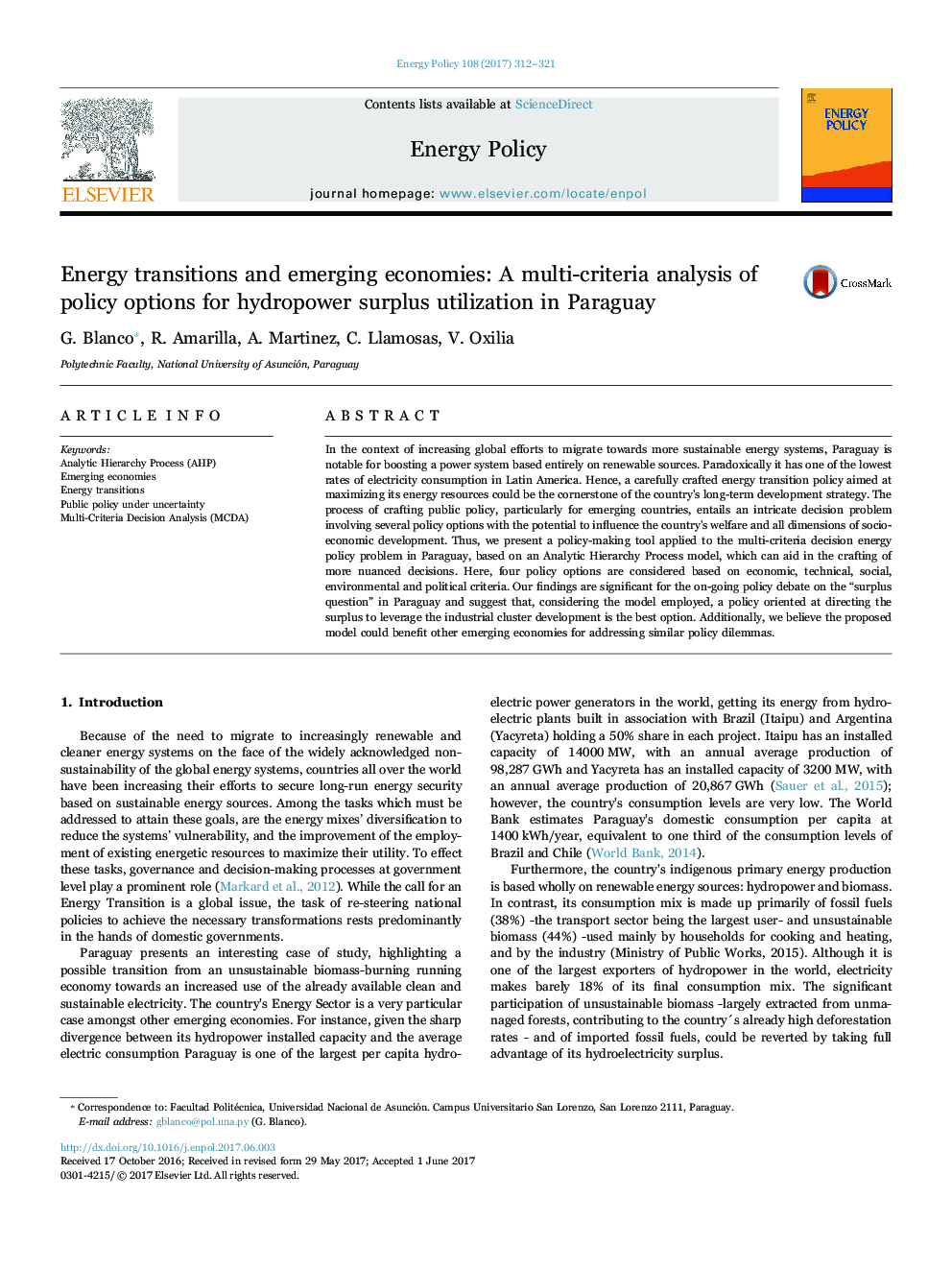| Article ID | Journal | Published Year | Pages | File Type |
|---|---|---|---|---|
| 5105659 | Energy Policy | 2017 | 10 Pages |
Abstract
In the context of increasing global efforts to migrate towards more sustainable energy systems, Paraguay is notable for boosting a power system based entirely on renewable sources. Paradoxically it has one of the lowest rates of electricity consumption in Latin America. Hence, a carefully crafted energy transition policy aimed at maximizing its energy resources could be the cornerstone of the country's long-term development strategy. The process of crafting public policy, particularly for emerging countries, entails an intricate decision problem involving several policy options with the potential to influence the country's welfare and all dimensions of socio-economic development. Thus, we present a policy-making tool applied to the multi-criteria decision energy policy problem in Paraguay, based on an Analytic Hierarchy Process model, which can aid in the crafting of more nuanced decisions. Here, four policy options are considered based on economic, technical, social, environmental and political criteria. Our findings are significant for the on-going policy debate on the “surplus question” in Paraguay and suggest that, considering the model employed, a policy oriented at directing the surplus to leverage the industrial cluster development is the best option. Additionally, we believe the proposed model could benefit other emerging economies for addressing similar policy dilemmas.
Keywords
Related Topics
Physical Sciences and Engineering
Energy
Energy Engineering and Power Technology
Authors
G. Blanco, R. Amarilla, A. Martinez, C. Llamosas, V. Oxilia,
